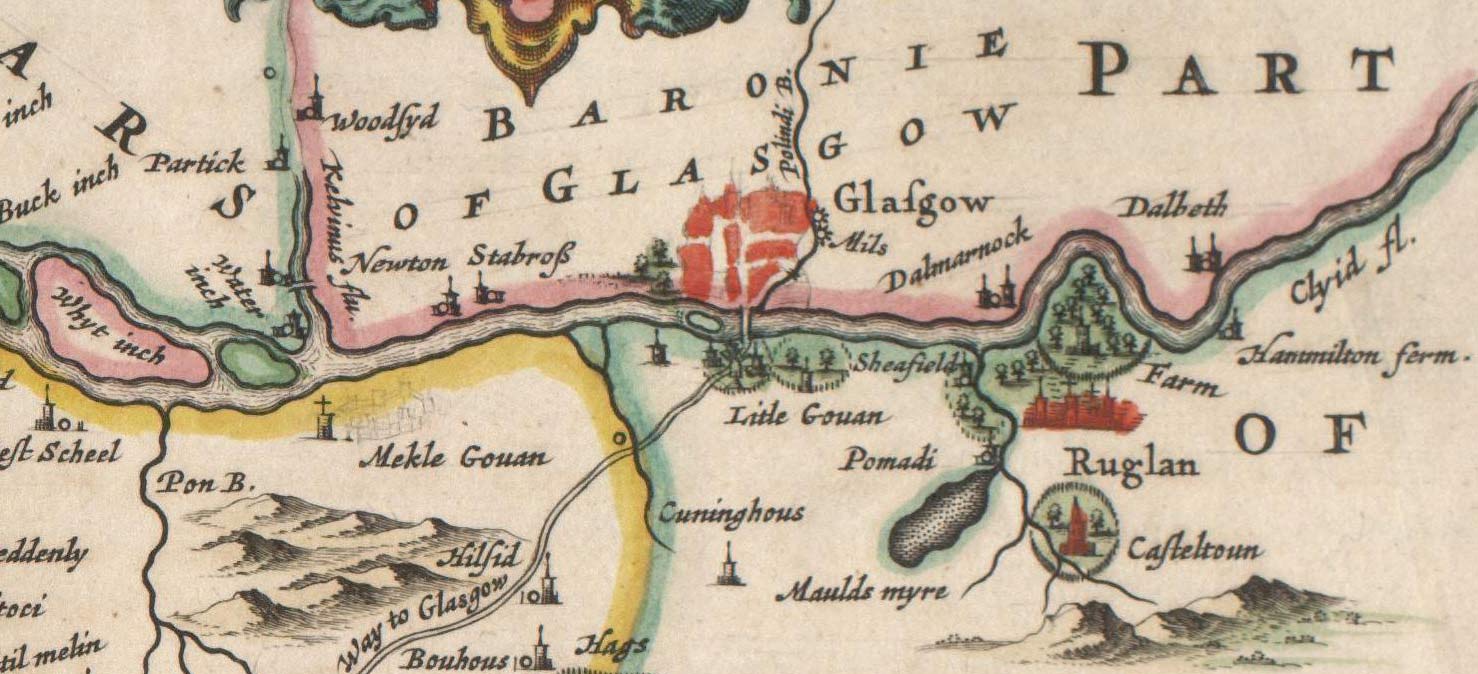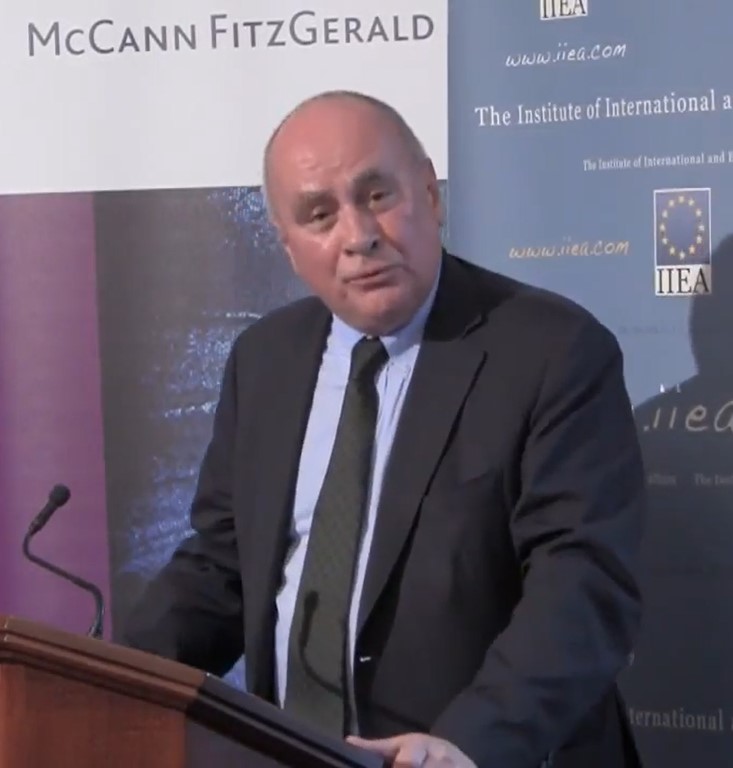|
CamGlen Radio
CamGlen Radio is a local radio station based in Rutherglen, South Lanarkshire, Scotland. It started broadcasting a full-time service on 19 March 2015. The station plays both modern and older songs. It broadcasts on 107.9 FM to Rutherglen, Cambuslang and the surrounding area in South-East Glasgow and South Lanarkshire. It is also available through Wi-Fi radio and the internet. History After the concept for the station came about in 2004-2005, the station first broadcast via a Restricted Service Licence in May 2007. Subsequently, it would complete eleven other short term broadcasts, during which planning for a full-time application began. Having submitted a 27-page application on 13 Feb 2012, it was announced on 20 July of the same year that it had been awarded a community radio licence for full-time broadcasting The RSL broadcasts continued while preparation for the full-time licence began The full-time launch was originally planned for 17 Jul 2014, but was delayed when a £4 ... [...More Info...] [...Related Items...] OR: [Wikipedia] [Google] [Baidu] |
Rutherglen
Rutherglen (, sco, Ruglen, gd, An Ruadh-Ghleann) is a town in South Lanarkshire, Scotland, immediately south-east of the city of Glasgow, from its centre and directly south of the River Clyde. Having existed as a Lanarkshire burgh in its own right for more than 800 years, in 1975 Rutherglen lost its own local council and administratively became a component of the City of Glasgow District within the Strathclyde region (along with neighbouring Cambuslang). In 1996 the towns were reallocated to the South Lanarkshire council area.From a pawnbrokers to Parliament - Tommy McAvoy looks back on a career that took him to the House of Lords Marc McLean, Daily Record, 11 September 2018. Retrieved 1 January ... [...More Info...] [...Related Items...] OR: [Wikipedia] [Google] [Baidu] |
Cambuslang
Cambuslang ( sco, Cammuslang, from gd, Camas Lang) is a town on the south-eastern outskirts of Greater Glasgow, Scotland. With approximately 30,000 residents, it is the 27th largest town in Scotland by population, although, never having had a town hall, it may also be considered the largest village in Scotland. It is within the local authority area of South Lanarkshire and directly borders the town of Rutherglen to the west. Historically, it was a large civil parish incorporating the nearby hamlets of Newton, Flemington, Westburn and Halfway. Cambuslang is located just south of the River Clyde and about southeast of the centre of Glasgow. It has a long history of coal mining, from at least 1490, iron and steel making, and ancillary engineering works, most recently The Hoover Company (in the town from 1946 to 2005). The Clydebridge Steelworks and other smaller manufacturing businesses continue but most employment in the area comes from the distribution or service industrie ... [...More Info...] [...Related Items...] OR: [Wikipedia] [Google] [Baidu] |
Daily Record (Scotland)
The ''Daily Record'' is a national tabloid newspaper which is published online also based in Glasgow, Scotland. The newspaper is published Monday-Saturday while the website is updated on an hourly basis, seven days a week. The ''Record'''s sister title is the '' Sunday Mail''. The title has been headquartered in Glasgow for its entire history. It is owned by Reach plc and has a close kinship with the UK-wide ''Daily Mirror'' as a result. The ''Record'' covers UK news and sport with a Scottish focus. Its website boasts the largest readership of any publisher based in Scotland. The title was at the forefront of technological advances in publishing throughout the 20th century and became the first European daily newspaper to be produced in full colour. For much of the last fifty years, the ''Sun'' has been the largest selling newspaper in Scotland. As the ''Records print circulation has declined in line with other national papers, it has focused increasing attention on expanding i ... [...More Info...] [...Related Items...] OR: [Wikipedia] [Google] [Baidu] |
FM Broadcasting
FM broadcasting is a method of radio broadcasting using frequency modulation (FM). Invented in 1933 by American engineer Edwin Armstrong, wide-band FM is used worldwide to provide high fidelity sound over broadcast radio. FM broadcasting is capable of higher fidelity—that is, more accurate reproduction of the original program sound—than other broadcasting technologies, such as AM broadcasting. It is also less susceptible to common forms of interference, reducing static and popping sounds often heard on AM. Therefore, FM is used for most broadcasts of music or general audio (in the audio spectrum). FM radio stations use the very high frequency range of radio frequencies. Broadcast bands Throughout the world, the FM broadcast band falls within the VHF part of the radio spectrum. Usually 87.5 to 108.0 MHz is used, or some portion thereof, with few exceptions: * In the former Soviet republics, and some former Eastern Bloc countries, the older 65.8–74 MHz band ... [...More Info...] [...Related Items...] OR: [Wikipedia] [Google] [Baidu] |
Pop Music
Pop music is a genre of popular music that originated in its modern form during the mid-1950s in the United States and the United Kingdom. The terms ''popular music'' and ''pop music'' are often used interchangeably, although the former describes all music that is popular and includes many disparate styles. During the 1950s and 1960s, pop music encompassed rock and roll and the youth-oriented styles it influenced. '' Rock'' and ''pop'' music remained roughly synonymous until the late 1960s, after which ''pop'' became associated with music that was more commercial, ephemeral, and accessible. Although much of the music that appears on record charts is considered to be pop music, the genre is distinguished from chart music. Identifying factors usually include repeated choruses and hooks, short to medium-length songs written in a basic format (often the verse-chorus structure), and rhythms or tempos that can be easily danced to. Much pop music also borrows elements from other s ... [...More Info...] [...Related Items...] OR: [Wikipedia] [Google] [Baidu] |
Modern Adult Contemporary Music
Adult contemporary music (AC) is a form of radio-played popular music, ranging from 1960s vocal and 1970s soft rock music to predominantly ballad-heavy music of the present day, with varying degrees of easy listening, pop, soul, R&B, quiet storm and rock influence. Adult contemporary is generally a continuation of the easy listening and soft rock style that became popular in the 1960s and 1970s with some adjustments that reflect the evolution of pop/rock music. Adult contemporary tends to have lush, soothing and highly polished qualities where emphasis on melody and harmonies is accentuated. It is usually melodic enough to get a listener's attention, and is inoffensive and pleasurable enough to work well as background music. Like most of pop music, its songs tend to be written in a basic format employing a verse–chorus structure. The format is heavy on romantic sentimental ballads which mostly use acoustic instruments (though bass guitar is usually used) such as acoustic g ... [...More Info...] [...Related Items...] OR: [Wikipedia] [Google] [Baidu] |
English Language
English is a West Germanic language of the Indo-European language family, with its earliest forms spoken by the inhabitants of early medieval England. It is named after the Angles, one of the ancient Germanic peoples that migrated to the island of Great Britain. Existing on a dialect continuum with Scots, and then closest related to the Low Saxon and Frisian languages, English is genealogically West Germanic. However, its vocabulary is also distinctively influenced by dialects of France (about 29% of Modern English words) and Latin (also about 29%), plus some grammar and a small amount of core vocabulary influenced by Old Norse (a North Germanic language). Speakers of English are called Anglophones. The earliest forms of English, collectively known as Old English, evolved from a group of West Germanic (Ingvaeonic) dialects brought to Great Britain by Anglo-Saxon settlers in the 5th century and further mutated by Norse-speaking Viking settlers starting in the 8 ... [...More Info...] [...Related Items...] OR: [Wikipedia] [Google] [Baidu] |
South Lanarkshire
gd, Siorrachd Lannraig a Deas , image_skyline = , image_flag = , image_shield = Arms_slanarkshire.jpg , image_blank_emblem = Slanarks.jpg , blank_emblem_type = Council logo , image_map = , map_caption = , coordinates = , seat_type = Admin HQ , seat = Hamilton , government_footnotes = , governing_body = South Lanarkshire Council , leader_title = Control , leader_name = Labour minority (council NOC) , leader_title1 = MPs , leader_name1 = * David Mundell ( Dumfriesshire, Clydesdale and Tweeddale) * Lisa Cameron ( East Kilbride, Strathaven and Lesmahagow) * Angela Crawley ( Lanark and Hamilton East) * Margaret Ferrier ( Rutherglen and Hamilton West) , subdivision_type = Sovereign state , subdivision_name = United Kingdom , subdivision_type1 = , su ... [...More Info...] [...Related Items...] OR: [Wikipedia] [Google] [Baidu] |
Glasgow
Glasgow ( ; sco, Glesca or ; gd, Glaschu ) is the most populous city in Scotland and the fourth-most populous city in the United Kingdom, as well as being the 27th largest city by population in Europe. In 2020, it had an estimated population of 635,640. Straddling the border between historic Lanarkshire and Renfrewshire, the city now forms the Glasgow City Council area, one of the 32 council areas of Scotland, and is governed by Glasgow City Council. It is situated on the River Clyde in the country's West Central Lowlands. Glasgow has the largest economy in Scotland and the third-highest GDP per capita of any city in the UK. Glasgow's major cultural institutions – the Burrell Collection, Kelvingrove Art Gallery and Museum, the Royal Conservatoire of Scotland, the Royal Scottish National Orchestra, Scottish Ballet and Scottish Opera – enjoy international reputations. The city was the European Capital of Culture in 1990 and is notable for its architecture, cult ... [...More Info...] [...Related Items...] OR: [Wikipedia] [Google] [Baidu] |
Restricted Service Licence
A UK Restricted Service Licence (often called an RSL), is typically granted to radio stations and television stations broadcasting within the UK to serve a local community or a special event. Licences are granted by the broadcasting authority Ofcom (formerly the Radio Authority and the Independent Television Commission, respectively). History In 1972, the Independent Broadcasting Authority was created and given responsibility for regulating independent television and radio services in the UK. Over time, the demand for local services increased, and finally prompted an Act of Parliament to deregulate the respective industries and facilitate new long-term and short-term broadcast licences. In 1990, the Broadcasting Act 1990 became law, and led to the establishment of two licensing authorities: the Radio Authority to license new radio services and monitor existing licences, and the Independent Television Commission, to license new short-term television services. While the 1 ... [...More Info...] [...Related Items...] OR: [Wikipedia] [Google] [Baidu] |
Ofcom
The Office of Communications, commonly known as Ofcom, is the government-approved regulatory and competition authority for the broadcasting, telecommunications and postal industries of the United Kingdom. Ofcom has wide-ranging powers across the television, radio, telecoms and postal sectors. It has a statutory duty to represent the interests of citizens and consumers by promoting competition and protecting the public from harmful or offensive material. Some of the main areas Ofcom presides over are licensing, research, codes and policies, complaints, competition and protecting the radio spectrum from abuse (e.g., pirate radio stations). The regulator was initially established by the Office of Communications Act 2002 and received its full authority from the Communications Act 2003. History On , the Queen's Speech to the UK Parliament announced the creation of Ofcom. The new body, which was to replace several existing authorities, was conceived as a "super-regulator" to ov ... [...More Info...] [...Related Items...] OR: [Wikipedia] [Google] [Baidu] |





